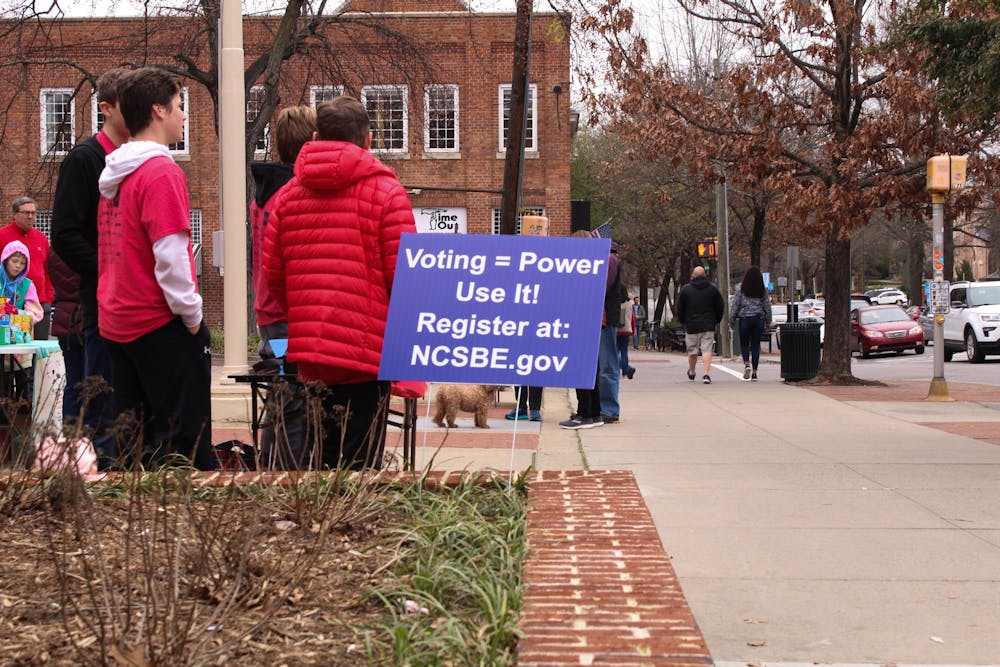Following the technological issues in the Iowa caucuses and with the cyberattacks of 2016 still fresh in their minds, voters across the country are worried about security in the upcoming presidential election. And with votes being compromised due to issues in Charlotte, Greensboro and Winston-Salem a mere two years ago, there is renewed concern about security for the primaries on March 3.
Due to the widely covered tabulation errors in the Iowa caucuses, Rachel Raper, director of the Orange County Board of Elections, said she has been asked many times whether there is a risk of such an error in Orange County.
“I’ve answered this question a lot in the last week, so I just want to make sure that everyone is aware that a caucus is not an election,” Raper said. “We have professionally run elections, so I think that’s the biggest distinction about North Carolina and Iowa.”
Patrick Gannon, public information officer for the North Carolina State Board of Elections (NCSBE), echoed that sentiment.
"The political parties have no role in the political process whatsoever, so to compare our voting systems to Iowa would be like comparing apples to the furthest possible fruit,” Gannon said.
Suzanne Globetti, a political science professor at UNC, said from what she has heard, the errors in Iowa were a result of a new system that has never before been used in the field.
“Any time you start a new technology, even if it’s not being hacked — which the app (used in Iowa) was not hacked — any time you have a change, there’s the potential for some type of mistake," she said.
Gannon made it clear that this will not be an issue in North Carolina.
“The state has certified three voting systems, ES&S (Election Systems & Software), Clear Ballot or (Hart) InterCivic, and those are federally certified, as well, so they’ve passed rigorous tests at both the local and state levels,” he said.



